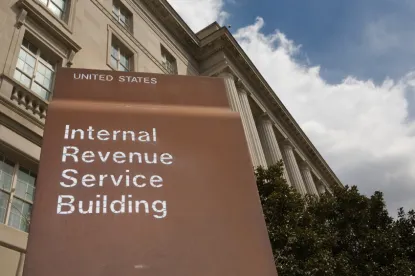The IRS announced on April 1 that it has released new proposed issue price regulations that would provide issuers greater flexibility in determining the issue price of a bond issue.
You may recall that on Sept. 16, 2013, the IRS announced earlier proposed regulations that would overturn the familiar “reasonable expectations” test for establishing the issue price of a bond issue. The issue price of a bond issue is important because many of the tax requirements that apply to tax-advantaged bonds key off of issue price, not the least of which is the bond yield, which sets the permitted yield that the issuer can earn on the investment of unspent bond proceeds. Instead, under the 2013 proposed regulations, the issuer would be forced to use the actual sale price of at least 25% of each maturity of the bonds to determine the issue price of the bonds.
The proposal in the 2013 proposed regulations triggered a vigorous response from members of the public finance community. After considering these comments, the IRS has today released new proposed issue price regulations that provide issuers with greater flexibility in determining the issue price of an issue of tax-advantaged bonds.
Under the new proposed regulations announced April 1, the issuer would choose from one of several methods to determine the issue price of an issue of bonds:
Actual sales of 10% of each maturity. This proposal blends elements of the existing issue price regulations with elements of the 2013 proposed regulations. The proposed regulations both abolished reliance on reasonable expectations and increased the threshold percentage for setting issue price from 10% to 25%. This approach would keep the percentage at 10%, but would require the parties to refer to the actual sale prices rather than reasonably expected sale prices.
Baseball-style arbitration. The issuer and the underwriter each select an arbitrator, who must be a registered municipal advisor, which can include the municipal advisor for the issue, and those two then select the third arbitrator. The panel decides the issue price of the bonds based on a review of the financial data for the issue.
MMA-style arbitration. The underwriter mails a copy of the screenshots of the trade data to mixed martial arts star Ronda Rousey, who selects the issue price. Although the regulations provide for an appeal process, it seems unlikely that it will be used, assuming that the rumors of Vin Diesel and The Rock’s planned joint venture, Fast and Furious Financial, are nothing more than rumors.
Augury. Some members of the public finance community are sure to question the wisdom of using the ancient art of interpreting the will of the gods by studying birds in flight and their noises, flight patterns, direction, and species to determine the issue price of an issue of bonds (not to mention the mechanics of how to apply this technique to the realm of finance), but the IRS should be commended for providing ample flexibility to issuers. (The regulations provide a safe harbor for an issue price based “in whole or in part” on data from Roger Tory Peterson’s Field Guide to Birds when the identification of the species is in doubt.)
The “Dungeons and Dragons” method. The proposed regulations would create a new, unpaid position with the Tax-Exempt Bond division of the IRS, to be staffed by “a child between the ages of 9 and 14,” who would determine the issue price of the bonds through sequential rolls of a 20-sided die, but only if “all your homework is done and you finished your supper and and NO YOU CANNOT PLAY ANGRYBIRDS UNTIL YOU GET BACK TO MS. ROGERS AT THE CITY’S FINANCE OFFICE.”
One IRS official, who agreed to speak with The Public Finance Tax Blog on condition of anonymity, said that a more controversial proposal, which would police issue price discrepancies by imposing personal liability on the individual bond lawyers or public finance tax lawyers who worked on a particular deal, was not included in the proposed regulations but “remains under consideration.” The IRS official said that, under this proposal, each public finance firm may designate one of its bond lawyers or public finance tax lawyers to accept liability on behalf of every lawyer in the firm, a role the anonymous IRS official described as the designated “jail partner.” Under one version of this proposal, the jail partner would be required to obtain a “Jail Partner Tax Identification Number,” and that the 8038 series forms would be revised to require that the paid preparer of the form must provide both a PTIN and a JPTIN.
A full copy of the new proposed regulations can be found here.




 />i
/>i
